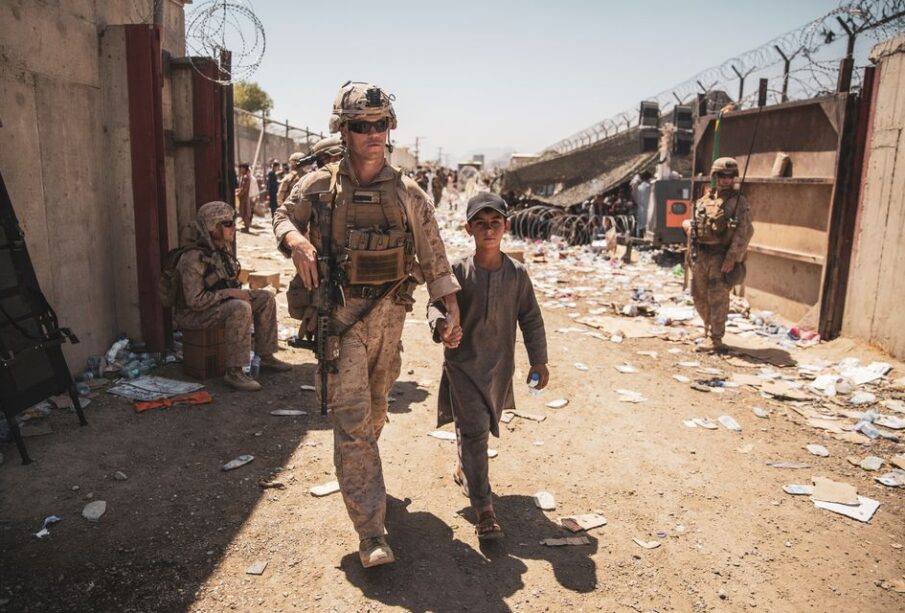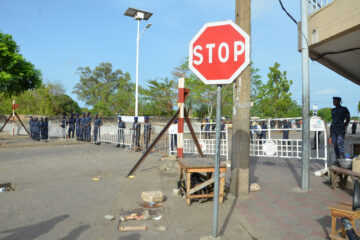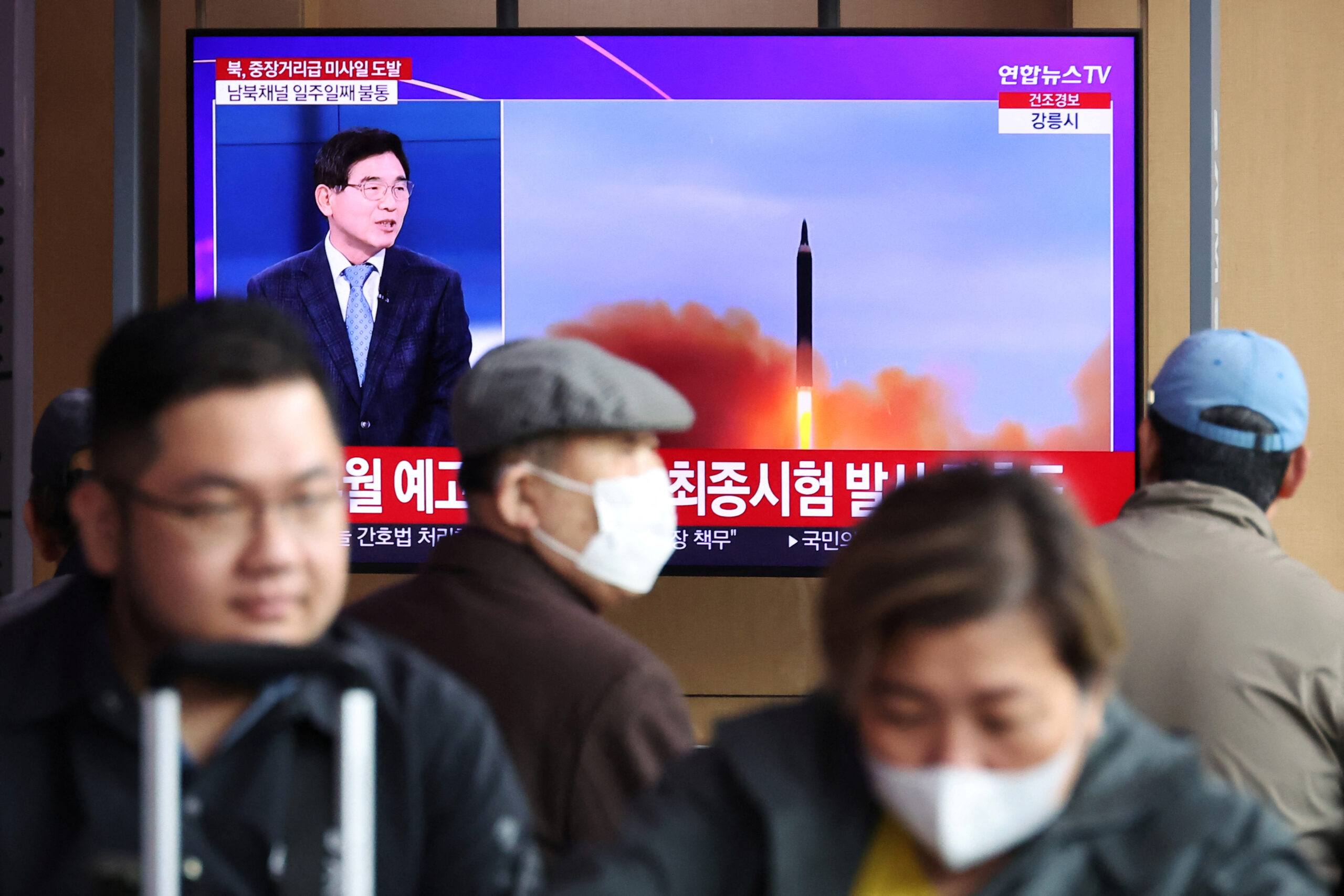Biden says Afghan evacuation on track; humanitarian crisis looms
 Evacuation at Hamid Karzai International Airport. REUTERS
Evacuation at Hamid Karzai International Airport. REUTERSWestern countries rushed to complete the evacuation of thousands of people from Afghanistan on Wednesday as the Aug. 31 deadline for the withdrawal of foreign troops drew closer with no sign that the country’s new Taliban rulers might allow an extension.
In one of the biggest such airlifts ever, the United States and its allies have evacuated more than 70,000 people, including their citizens, NATO personnel and Afghans at risk, since Aug. 14, the day before the Taliban swept into the capital Kabul to bring to an end a 20-year foreign military presence.
U.S. President Joe Biden said U.S. troops in Afghanistan faced mounting danger and aid agencies warned of an impending humanitarian crisis for the population left behind.
Biden said they were on pace to meet the deadline, set under an agreement struck with the Islamist group last year to end America’s longest war.
“The sooner we can finish, the better,” Biden said on Tuesday. “Each day of operations brings added risk to our troops.”
Two U.S. officials, speaking on condition of anonymity, said there was growing concern about the risk of suicide bombings by Islamic State at the airport.
British foreign minister Dominic Raab said the deadline for evacuating people was up to the last minute of the month.
Tens of thousands of Afghans fearing persecution have thronged Kabul’s airport since the Taliban takeover, the lucky ones securing seats on flights.
Many people milled about outside the airport – where soldiers from the United States, Britain and other nations were trying to maintain order amid the dust and heat – on Wednesday hoping to get out.
They carried bags and suitcases stuffed with possessions, and waved documents at soldiers which might gain them entry. Some clutched young children.
“I learned from an email from London that the Americans are taking people out, that’s why I’ve come so I can go abroad,” said one man, Aizaz Ullah.
While the focus is now on those people trying to flee, the risk of starvation, disease and persecution is rising for the rest of the population after the chaotic exodus from Kabul airport ends, aid agencies say.
“There’s a perfect storm coming because of several years of drought, conflict, economic deterioration, compounded by COVID,” David Beasley, the executive director of the U.N. World Food Programme, told Reuters in Doha, calling for the international community to donate $200 million in food aid.
“The number of people marching towards starvation has spiked to now 14 million.”
The EU said this week it was planning a quadrupling in aid and was seeking coordination with the United Nations on delivery as well as safety guarantees on the ground.
The U.N. human rights chief said she had received credible reports of serious violations by the Taliban, including “summary executions” of civilians and Afghan security forces who had surrendered. The Taliban have said they will investigate any reports of atrocities.
The Taliban’s previous time in power was marked by harsh sharia law, with many political rights and basic freedoms curtailed and women severely oppressed. It was also seen as a hub for anti-Western militants, and Washington, London and others fear it might become so again.
LAND ROUTES
A NATO country diplomat in Kabul, who declined to be identified, said several international aid groups are desperate to get their Afghan staff to neighbouring nations. Afghanistan’s neighbours should open their land borders to allow more people to leave, the diplomat said.
“Iran, Pakistan and Tajikistan should be pulling out far more people using either air or land routes. It’s vital air and land routes are used at a very fast pace,” the diplomat told Reuters.
The Taliban said all foreign evacuations must be completed by Aug. 31, and asked the United States to stop urging talented Afghans to leave, while also trying to persuade people at the airport to go home, assuring them that they had nothing to fear.
“We guarantee their security,” Taliban spokesman Zabihullah Mujahid told a news conference on Tuesday.
Leaders of the G7 major industrialized nations – Britain, Canada, France, Germany, Italy, Japan and the United States – on Tuesday discussed how to complete the withdrawal and deal with the Taliban now that they have seized power.
Britain’s Raab said the deadline for evacuating people would go up the last minute of next Tuesday.
“The military planners will firm up the details for the precise time frame,” Raab told BBC TV, adding that Britain hoped there would be a functioning airport in Kabul after the evacuations end.
French European Affairs Minister Clement Beaune told C News TV it was “very probable” that France’s operation to evacuate its citizens and partners would end on Thursday.
The Afghan government collapsed as the United States and its allies withdrew troops two decades after they ousted the Taliban in the weeks after the Sept. 11, 2001, attacks on the United States by al Qaeda militants, whose leaders had found safe haven in Taliban-ruled Afghanistan.
Leaders of the Taliban, who have sought to show a more moderate face since capturing Kabul, have begun talks on forming a government that have included discussions with some old enemies, including former President Hamid Karzai.
SOURCE: REUTERS










